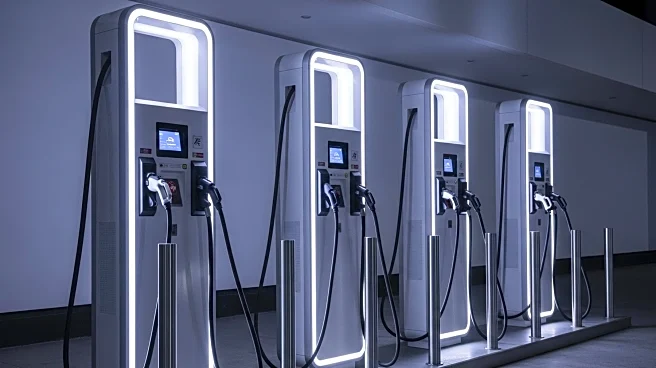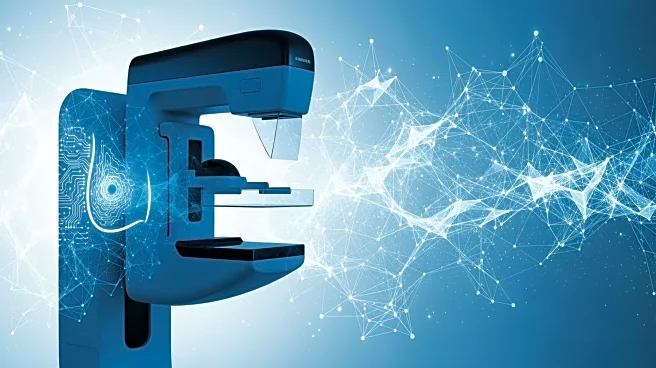What's Happening?
General Motors (GM) has announced a $1.6 billion charge related to the realignment of its electric vehicle (EV) manufacturing capacity. This decision comes as part of GM's ongoing reassessment of its EV production footprint. The company has indicated
that it is 'reasonably possible' that additional charges may be recognized in future quarters, potentially impacting its financial results. GM's move reflects broader industry trends as automakers navigate the evolving landscape of EV production and market demand. The company's new headquarters in downtown Detroit symbolize its commitment to adapting to these changes.
Why It's Important?
The $1.6 billion charge underscores the challenges faced by automakers in transitioning to electric vehicles. As GM adjusts its manufacturing strategy, it highlights the financial implications of shifting towards sustainable transportation solutions. This realignment is crucial for GM to remain competitive in the rapidly growing EV market, where companies are racing to meet consumer demand and regulatory requirements for cleaner vehicles. The financial impact of these adjustments may affect GM's profitability and investor confidence, while also influencing the broader automotive industry's approach to EV production.
What's Next?
GM's ongoing reassessment of its EV manufacturing capacity suggests that further strategic decisions are likely. The company may continue to evaluate its production facilities and supply chain to optimize efficiency and cost-effectiveness. Stakeholders, including investors and industry analysts, will be closely monitoring GM's actions and their impact on the company's financial health. Additionally, GM's competitors may respond by adjusting their own strategies to capitalize on opportunities in the EV market, potentially leading to increased innovation and competition.
Beyond the Headlines
The realignment of GM's EV capacity may have broader implications for the automotive industry, including potential shifts in employment and regional economic impacts. As GM and other automakers invest in EV technology, there may be increased demand for skilled workers in areas such as battery production and software development. This transition could also influence public policy, as governments seek to support the growth of sustainable transportation through incentives and infrastructure development.














